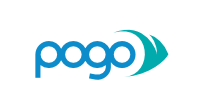The AMT Programme
The Atlantic Meridional Transect (AMT) programme (www.amt-uk.org) began in 1995, utilising the passage of the RRS James Clark Ross through the Atlantic Ocean between the UK and the Falkland Islands (50°N to 52°S, a distance of over 13,500 km) southwards in September and northwards in April each year. The transect crosses a range of ecosystems from sub-polar to tropical, and from eutrophic shelf seas and upwelling systems to oligotrophic mid-ocean gyres. The scientific aims included an assessment of mesoscale to basin-scale phytoplankton processes, the functional interpretation of bio-optical signatures and the seasonal, regional and latitudinal variations in mesozooplankton dynamics. The programme provided a platform for international scientific collaboration, including the calibration and validation of SeaWiFS measurements and products. The measurements of hydrographic and bio-optical properties, plankton community structure and primary production completed on the first 12 transects (1995-2000) represent the most coherent set of repeated biogeochemical observations over ocean-basin scales. This unique dataset has led to several important discoveries concerning the identification of oceanic provinces, validation of ocean colour algorithms, documentation of distributions of picoplankton, identification of new regional sinks of pCO2 and quantification of variability in rates of primary production and respiration.
In 2002, the programme restarted (2002-2006) and broadened, to address a suite of cross-disciplinary research questions concerning ocean plankton ecology and biogeochemistry and their links to atmospheric processes. The objectives included the determination of 1) how the structure, functional properties and trophic status of the major planktonic ecosystems vary in space and time; 2) how physical processes control the rates of nutrient supply, including dissolved organic matter, to the planktonic ecosystem; and 3) how atmosphere-ocean exchange and photodegradation influence the formation and fate of organic matter.
Between 1995 and 2017, the programme has included 27 research cruises, involving more than 250 scientists from >22 countries, contributing to over 300 refereed publications and 75 PhD theses. AMT continues to contribute to science and policy development including the social and economic understanding of the marine environment and services it delivers. This unique spatially extensive decadal dataset continues to be deposited and made available to the wider community through the British Oceanographic Data Centre (www.bodc.ac.uk).
AMT-28 will take place in September-October 2018 between the UK and the Falkland Islands, as part of a long-term multi-disciplinary ocean observation programme, a platform for national and international scientific collaboration, a training arena for the next generation of oceanographers and an ideal facility for validation of novel technology.
Documents available to download:





